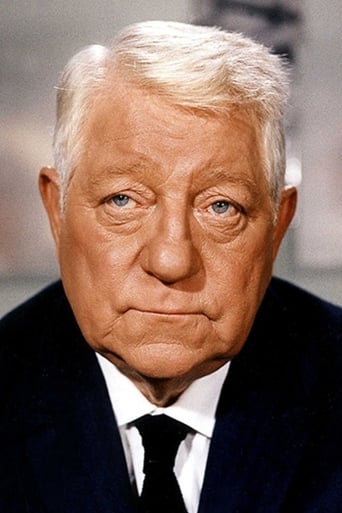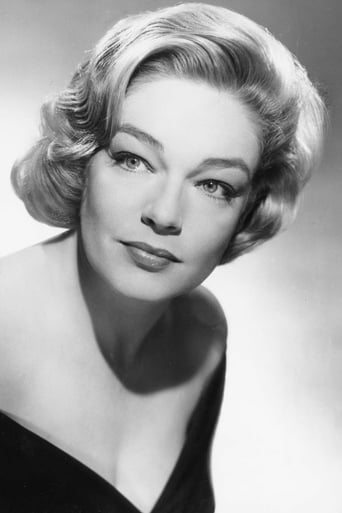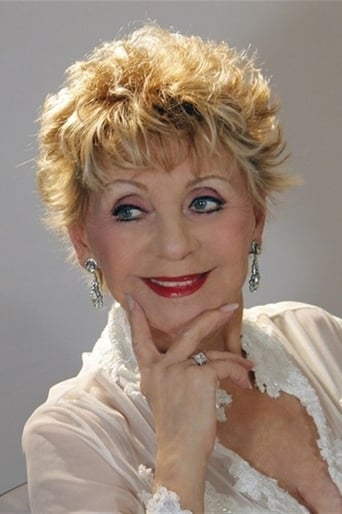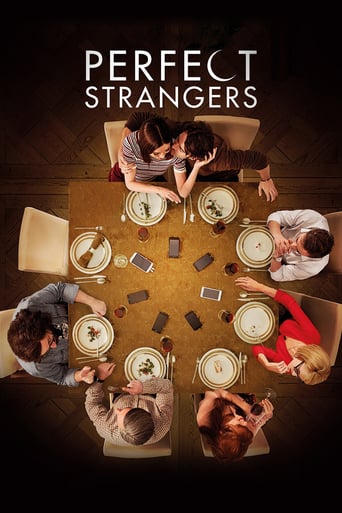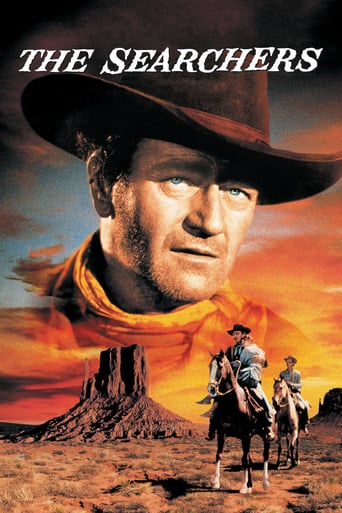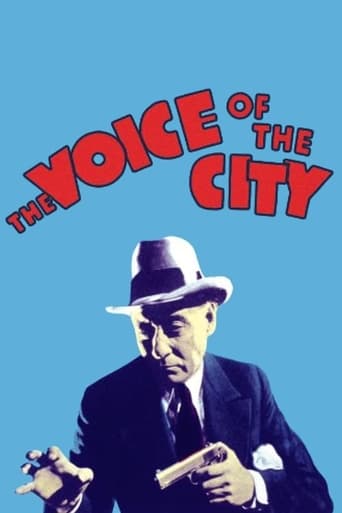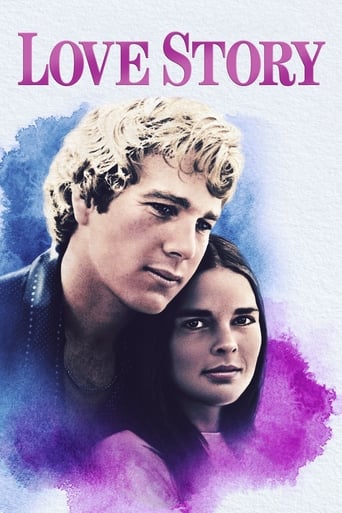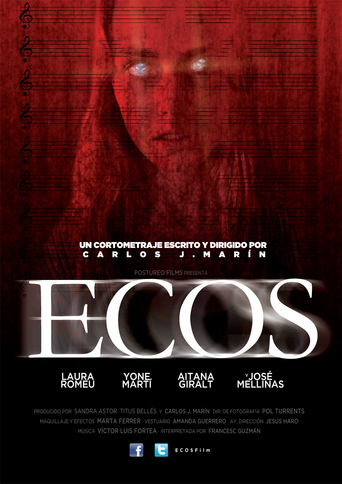
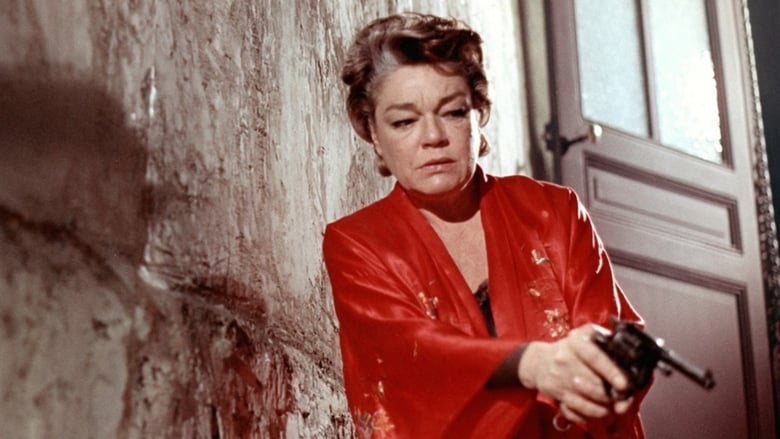
The Cat (1971)
Julien Bouin, a former typographist, and his wife Clemence, who used to perform in a circus, hardly talk to each other in their small house, soon to be demolished. His cat Greffier being the only one he still gives affection to, he becomes the object of Clemence's anger.
Watch Trailer
Cast


Similar titles
Reviews
Thanks for the memories!
Strong and Moving!
Fresh and Exciting
The acting in this movie is really good.
Never had silence been as eloquent as in the first act of "The Cat". Most of the exchanges consist on severe glares, desperate stares and a few thrown written notes, but there's a reason why nothing much is said, we don't need words to feel for the characters, nor to understand their opposite needs and motives.So, the minimalism is less an artistic license from director Pierre Granier-Deferre than the authentic, true-to-life translation of marital boredom, carried by two actors who didn't need dialogues to shine: they had faces, and what faces! With the solid and sensitive presence of veteran actor Jean Gabin and blue-eyed Simone Signoret who, at 49, looked ten years older, the hardest part was over. Indeed, seeing these two living monuments, act, react and sometimes, interact, was a soul-haunting spectacle by itself. Yet, quoting Gabin, star-system was over: even his presence of Signoret's wouldn't have been enough to justify a film if there wasn't some reason-to-be.And that's "The Cat"'s offering: a powerful statement about marriage or the effect time has on the life of a former typewriter and an acrobat who had a limp from a youth accident. A few bucolic flashbacks (contrasting with the bleak tone of the first act) show a then-youthful couple that made love on the grass after romantic motorcycle rides, to finally surrender, thirty years later, to routine. It seems that whatever gave a spice to their life has turned sour and the house that was once looking onto a charming neighborhood became the sole survivor of urban expansion, and soon-to-be destroyed by ominous bulldozers. The buildings' destruction is a leitmotif of powerful value; it is not the house but the marriages' foundations that are obviously at stakes. In fact, the whole film is full of metaphorical symbolism, one that never feels forced as it is naturally inserted in the story, starting with the titular animal. The cat is an ordinary alley cat, not ugly but not exceptional either, and as soon as Julien Bouin finds it, it's literally love at first sight: the animal becomes his provider and repository of feelings, much to Lucienne's devastating jealousy. This is a woman abandoned by her husband, they live in the same house, share the same rooms, but they live in separate lives, the cat put the final nail in the coffin of their lost love, that glee in Julien's eyes with the cat on his knees is one she'll never get, and she can't resign herself.In fact, she has nothing against the cat, she even likes it but the poor animal reflects the heart nuisance the marriages turned to, and will trigger the chain of events that will lead to the heartbreaking final act. The film is told in flashback and this is the right choice because it leaves most of the powerful moments near the end so that the cat doesn't steal the actors' thunder. It is just a cause but not an end: the core of the film is the tragedy of a relationship that is so fragile that any blow can make it collapse, but as the story moves forward, we feel that the bigger tragedy is that it never does. Maybe divorces or separations have become such common practices that we can't understand why the two never envisioned that option, it is even questioned in the film when Julien goes to his old mistress, a brothel manager, played by Annie Cordy. And these dialogues with the mistress are integral to the comprehension of Julien's mysterious personality; he has such ugly words about his wife that the mistress doesn't understand why he doesn't leave her. Well, the answer is in the question, Julien can't prevent himself from talking about his wife, she's the center of his thoughts, as mean as they are, at least, they exist. Marriage seems like a plane in a storm, he's aboard and can do nothing about it. But Lucienne needs love and in one of the film's emotional outbursts, she says she wants a cat, too, to get her share of tenderness, and then she starts meowing hysterically, this is how desperate it is. Julien puts the final blow by commenting her awful looks when she's upset.But does he fool us? All through the film, we suspect that his heart is not devoid of feelings, the passion has just been diluted in the disillusion of time and boredom and he can't find a proper way to express it, maybe he doesn't know it himself. The film doesn't really provide answers, it just shows a reality that couples can relate to, even I who's been married for five years contemplate a same sort of existential block sometimes, and being younger than the couple is scarier because I wonder if the film can't work like a warning. But then again, this is not just about marriage but the effect of times on relationships. Julien and Lucienne, as old as they are, used to have dreams, and weren't just blue-collar workers so that life would be ahead of them after retirement, they had interesting jobs and they had no kids. Future couldn't look gloomier.They say marriage is an institution, well the film reminded me of this term coined in "The Shawshank Redemption" : being 'instutionalized', which means getting used to the very walls that used to scare us, because time has a double effect: it erodes relationships, but also build our resistance to their erosion, the tragedy of "The Cat" is that the effect is different from the husband to the wife, but the greatness of the film lies in the final minutes, and the way it toys with the sicknesses of the two leads, that can be both summarized as 'heart' conditions.I'm not sure I'd feel ready to watch "The Cat" again, but I know there will come a time, if I grow old enough, where I'll think about it, again.
Love fades and hatred settles in, holding firm for a very long time in Pierre Granier-Deferre's grim study of a marriage gone bad. Jean Gabin & Simone Signoret are a married couple whose relationship has outlasted their love for one another. They live in nearly mute misery, staying out of each other's way & exchanging notes as opposed to speaking. Gabin shows more affection, in fact ALL of his affection, toward a stray cat than to his wife. Signoret, a one-time acrobat injured years earlier & now saddled with a permanent limp exacts a terrible revenge on both Gabin and his cat. Granier-Deferre peppers the film with a fair amount of symbolism, but it's never muddy. It's quite clear that the decline of Gabin's and Signoret's relationship coincides with the gentrification of their neighborhood. Their house is the last on the block slated for demolition. An astounding, brilliantly acted movie and a very harsh look at just how nasty one human can be toward another. Philippe Sarde did the haunting music score.
First and foremost this is a Masterclass in the Art of Screen Acting by two of the most distinguished practitioners of that Art. Nine out of ten people who are interested in the comments of a film like this one will be fully conversant with the outstanding contribution made to Cinema by Jean Gabin and Simone Signoret but my time posting comments on this board has been punctuated at irregular intervals by PMs from teenagers anxious to learn more about the kind of cinema where popcorn both in a carton and between the ears is not a condition of admission to the auditorium and with that albeit tiny readership in mind I'll perhaps inform them and remind the more mature that Jean Gabin spent 15 years in the French Music Hall before turning to film in 1928 since when he graced such Classics as La Belle Equipe, Pepe Le Moko, Quai des Brumes, Le Jour se leve, La Grande Illusion, Remorques, Touchez-pas au grisbi, La Traversee de Paris, Melodie sous-sol to merely scratch the surface whilst Simone Signoret, although beginning somewhat later (1942) notched up an equally impressive CV; the early success Dedee d'Anvers was directed by her first husband Yves Allegret and she went on to feature in such classic titles as La Ronde, Casque d'Or, Les Diaboliques, Armee des Ombres and the English film Room At The Top, a performance which netted her the very first Best Actress Oscar awarded to a non-American actress. These then were the dual backgrounds and experience that these great actors brought to Le Chat and once again I find myself reporting on a film in the wake of other raves and once again I am both pleased and honored to add my voice to those others. As a Case History of a relationship that has soured to the point of bitterness and virtually no communication this movie hits every target at which it aims. There are long stretches at the beginning where we have only non-verbal acting of the highest order to tell us - and I use that word deliberately rather than 'show' - what is going on, what has GONE on and what WILL be the inevitable conclusion. Monitoring the emptiness, the hollowness, the bitterness of this relationship it's almost impossible - despite subtle reminders - to imagine that these people had once loved each other so much that they had chosen to spend their lives together. Now, inexplicably and unobtrusively that love has disintegrated til Julien (Gabin) loves only his cat, Greffier whilst Signoret still yearns wistfully for the love that has been lost. Most of the other comments here speak of depression, sadness and other negatives yet I did not find it so. True, there is little or nothing uplifting about such a story - especially so since the neighboring buildings are being pulled down around them and in yet another metaphor their house is shown, in earlier times, to form a natural cul-de-sac at right-angles to the others - but Great Acting will always transcend melodramatic emotion and screen Acting doesn't come Greater than this. Brilliant.
Elderly couple. Husband has nothing to communicate to his wife any more. Wife still longs for some affection. Only cat gets affection. Wife shoots cat. Husband even more alienated.My wife and I were watching this movie on TV. Our cats were sitting on our laps, happily purring. "A very profound movie about man-cat relationship", I remarked. "Actually it is more about the relationship between humans, or the lack of it", my wife replied. Of course, she was right.


